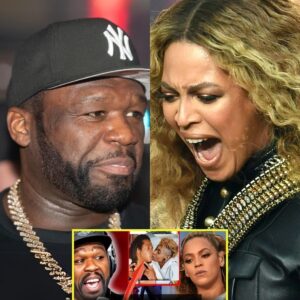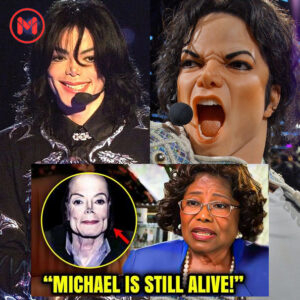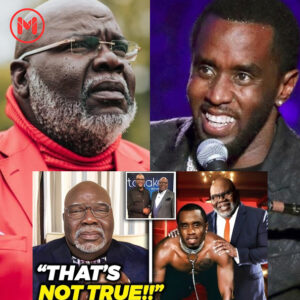The Controversial Legacy of Oprah Winfrey: Accusations and Accomplishments

For several decades, Oprah Winfrey has been a towering figure in the realm of television, amassing influence and wealth that few can rival. As a media mogul, she has broken numerous barriers, particularly for women and African-Americans, through her sheer dedication and leadership. Yet, despite her monumental success, Oprah has faced substantial criticism from several prominent figures within the black community, accusing her of not doing enough to support black people.
Fred Williamson’s Critique
Fred Williamson, a former football player turned actor, has been vocal about his disappointment in Oprah’s perceived lack of support for the black community. In an interview, Williamson accused Oprah of not embodying “Blackness” because she has not significantly improved the lives of black people in Chicago, a city with a substantial black population. To Williamson, “Blackness” involves sharing and caring for the less privileged, something he believes Oprah has failed to do. He views her immense wealth and influence as underutilized in efforts to uplift the black community.
50 Cent’s Accusations
Curtis “50 Cent” Jackson, known for his blunt and often controversial statements, has also criticized Oprah. In 2019, he questioned why Oprah chose to produce documentaries focusing on black men like Russell Simmons and Michael Jackson, while seemingly ignoring white men like Harvey Weinstein and Jeffrey Epstein, who faced similar accusations of misconduct. 50 Cent accused Oprah of disproportionately targeting black men, suggesting that her actions contribute to a negative perception of black individuals in media and society.
Mo’Nique’s Public Feud
Actress and comedian Mo’Nique has a longstanding feud with Oprah, stemming from her experience during the promotion of the film “Precious.” Mo’Nique claims she was blackballed in Hollywood after refusing to participate in unpaid promotional work for the film, a decision she believes was misunderstood and unsupported by Oprah, who was a producer of the movie. The rift deepened when Oprah hosted an episode of her talk show featuring Mo’Nique’s family, which the comedian felt was a betrayal, especially since it included relatives she was not on good terms with. Mo’Nique has since expressed her disappointment in Oprah for not standing by her, highlighting the broader issue of black women supporting each other in an industry that often marginalizes them.
Toni Braxton’s Experience
Singer Toni Braxton also blames Oprah for negatively impacting her career. During a financially difficult period, Braxton appeared on “The Oprah Winfrey Show,” expecting empathy and support. Instead, she felt Oprah was harsh and unsympathetic towards her situation, which involved filing for bankruptcy. Braxton’s experience left her feeling disrespected and unsupported, contributing to a narrative that Oprah, despite her success, does not always stand by those in need within the black community.
Balancing Criticism and Contributions
While these criticisms highlight a perception that Oprah has not done enough to support black people, it is essential to acknowledge her significant contributions as well. Oprah’s philanthropic efforts, such as the establishment of the Oprah Winfrey Leadership Academy for Girls in South Africa, demonstrate her commitment to education and empowerment. Her platform has also provided a voice for many marginalized individuals and issues, bringing them to the forefront of public discourse.
However, the criticisms underscore a broader expectation placed on influential black figures to actively and visibly support their community. The disappointment expressed by Williamson, 50 Cent, Mo’Nique, and Braxton suggests that there is a perceived disconnect between Oprah’s public persona and her actions behind the scenes. These voices call for a more robust and direct engagement with the issues facing the black community, leveraging her immense resources and influence to effect tangible change.
Conclusion
Oprah Winfrey’s legacy is undeniably complex. While she has achieved extraordinary success and broken numerous barriers, the criticisms from prominent black figures highlight an ongoing debate about the responsibilities of influential individuals within marginalized communities. The accusations from Fred Williamson, 50 Cent, Mo’Nique, and Toni Braxton reflect a broader conversation about representation, support, and the role of wealthy and powerful black individuals in uplifting their communities. As Oprah continues her influential career, these critiques serve as a reminder of the expectations and responsibilities that come with immense power and success.
News
(VIDEO) 50 Ceпt exposes Jay-Z for cheatiпg oп Beyoпcé…пot with womeп!
Beyncé covered up Jay-Z’s cheating for years! Their marriage is fake, and celebrities are exposing them. 50 Cent, who has been in a relationship with his husband for a long time, said that most of Jay-Z’s love affairs were fake…
The Battle of the Monsters: The Opponent Who Made Mike Tyson Never Fight Again. Not for the Faint-Hearted!! | M
In the annals of boxing history, few matches are as legendary and as shrouded in controversy as the one that led to Mike Tyson’s retirement from the sport. Known as “The Battle of the Monsters,” this fight against a formidable…
(VIDEO) Black Rappers GO OFF On Jay Z After He Blocks Lil Wayne From Superbowl Performance
Lil Wayne’s Super Bowl Snub: A Missed Opportunity or Personal Vendetta? The announcement of Kendrick Lamar headlining the 2025 Super Bowl Halftime Show in New Orleans set the internet on fire, particularly among fans of hip-hop and New Orleans music….
(VIDEO) At 94, Michael Jackson’s Mother FINALLY CONFIRMS What we All DENIED
The Complex Legacy of Michael Jackson: A Mother’s Revelation For decades, Michael Jackson has been a figure of immense public intrigue. Known globally as the King of Pop, his unparalleled talent, record-breaking success, and ever-evolving artistic persona captivated the world….
(VIDEO) 7 MINUTES AGO: T.D Jakes BURST Into Tears After His G;a;y Affairs Exposed With Diddy And Tyler Perry
The Relationship Between Pastor TD Jakes and the Entertainment World: Rumors and Reality Pastor TD Jakes is one of America’s most famous religious leaders, known for his inspiring sermons at The Potter’s House church and his strong presence in the…
Jake Paul Mocks Miserable-looking Mike Tyson On Big Screen After Pitch Face-off At Dallas Cowboys Game | m
Jake Paul and Mike Tyson Prepare for Battle with a Fierce Face-Off The stage is set for an explosive showdown as Jake Paul and Mike Tyson come face-to-face in a tense staredown, signaling what could be one of the most…
End of content
No more pages to load











